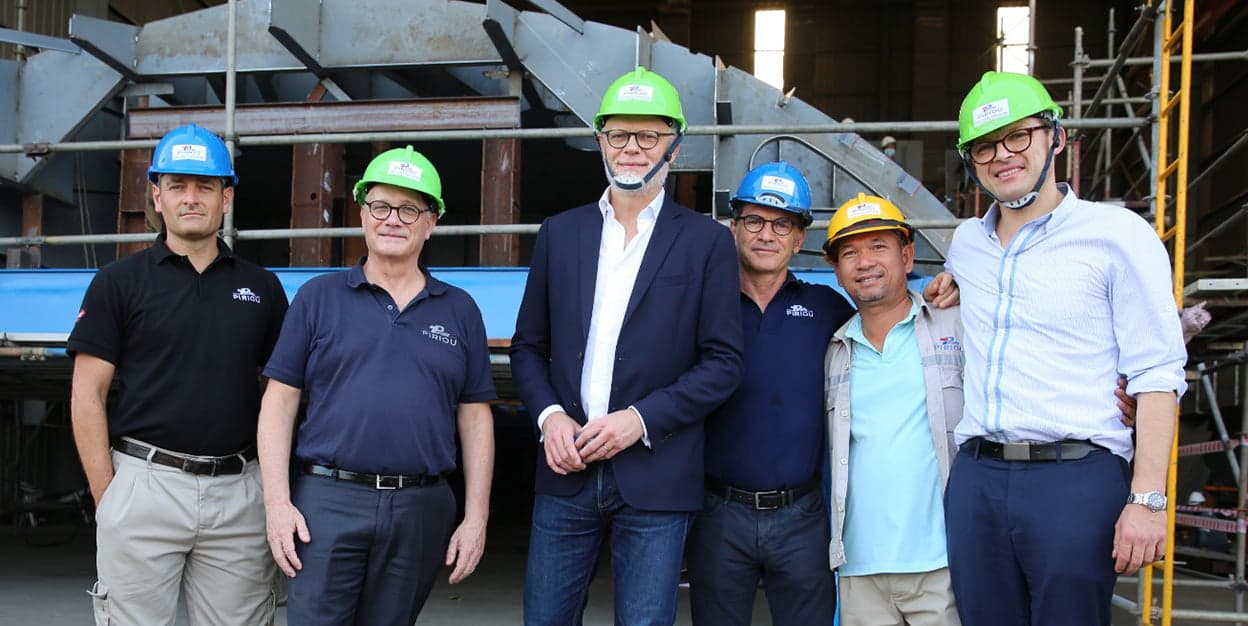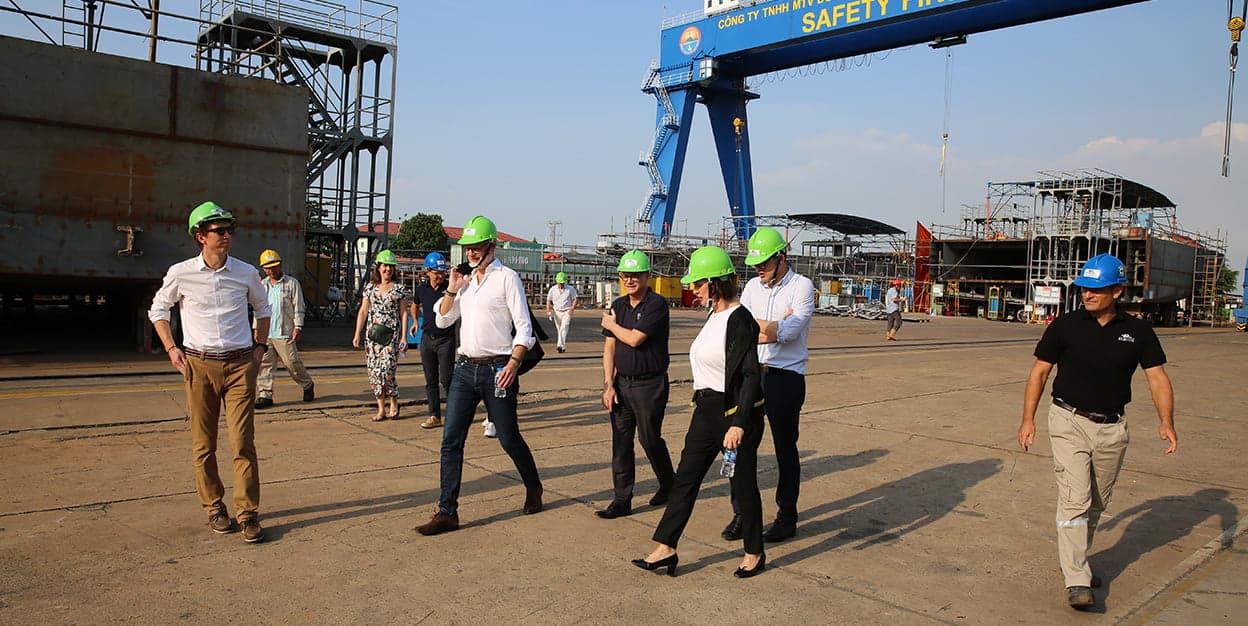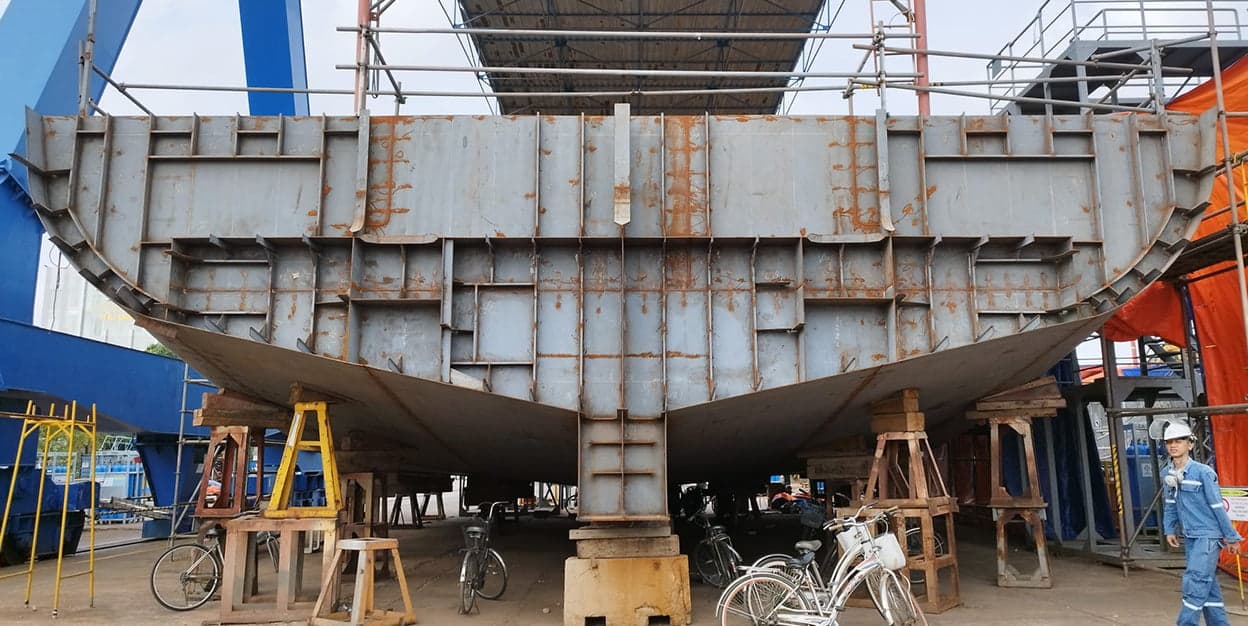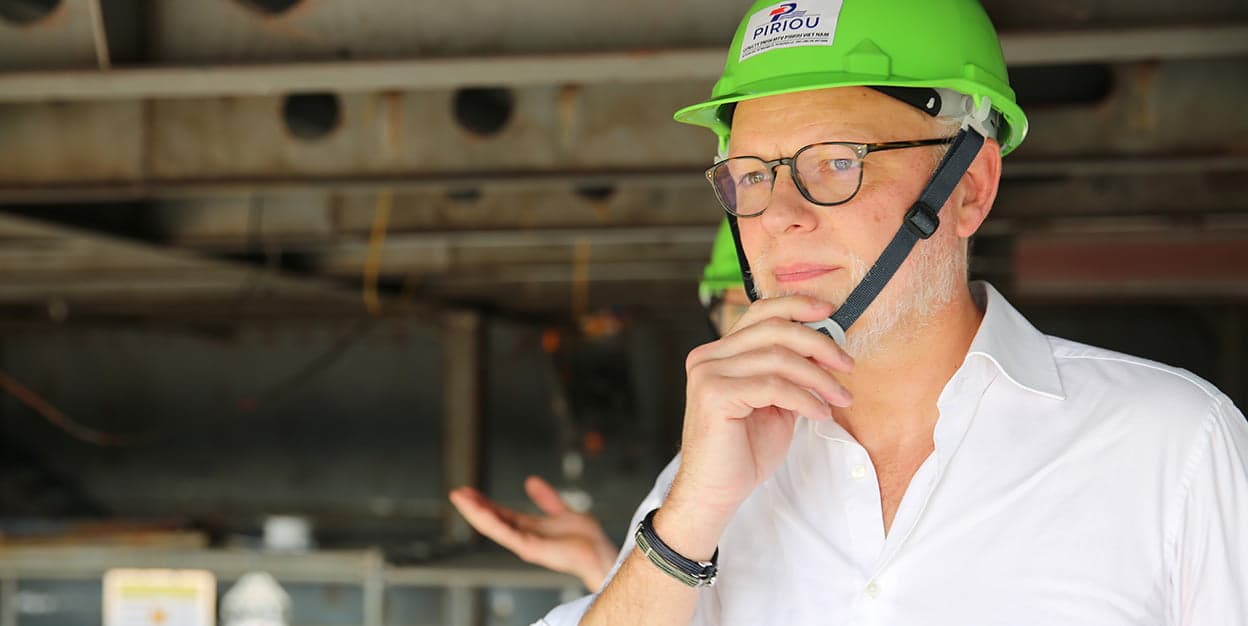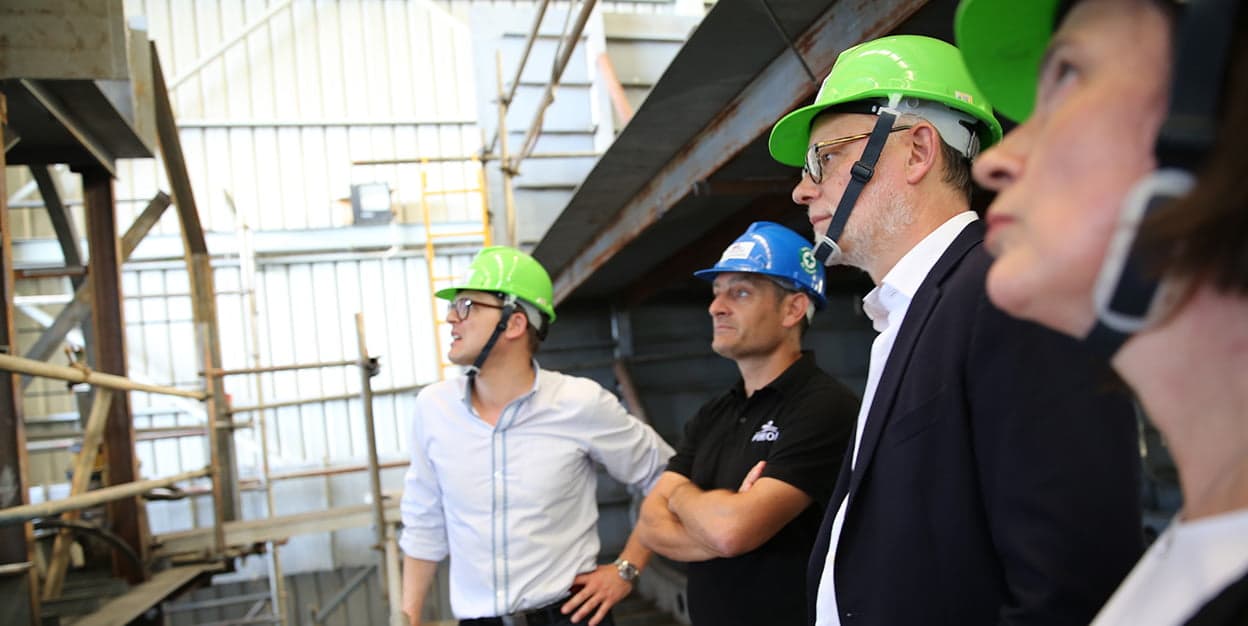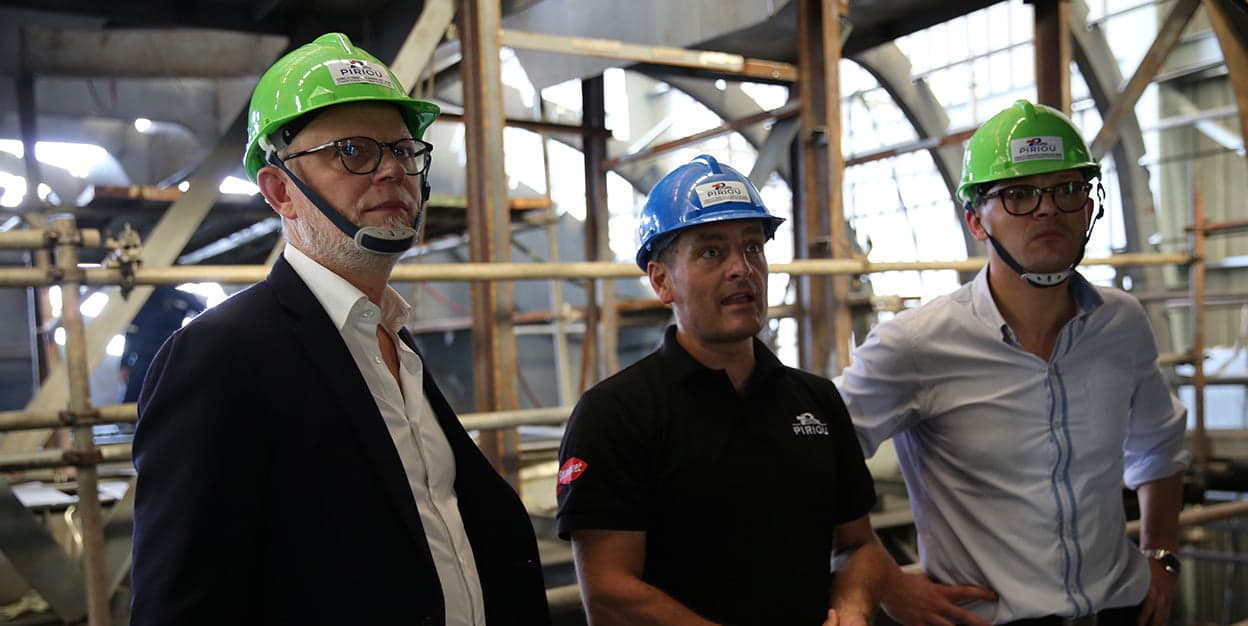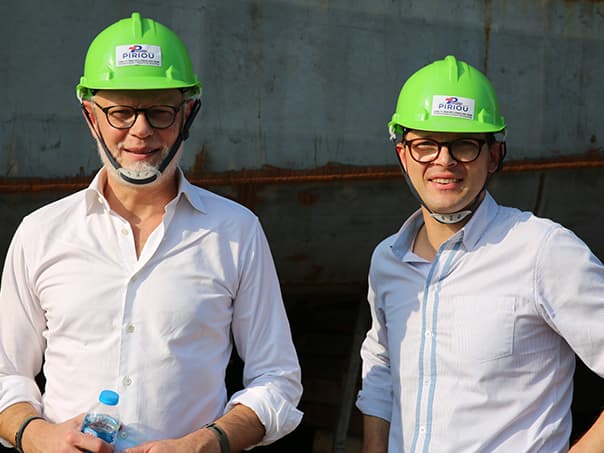
TOWT has been the leading sailing company since 2011 and is developing a fleet of efficient cargo sailing vessels, flying the French flag, to offer an innovative transoceanic logistics solution with high capacities, which is drastically low-carbon and profitable.
By 2025, TOWT guarantees 9,600 tons of CO2 emissions saved each year with two ships, departing and arriving from Le Havre, 72,000 tons per year of goods switched to low-carbon transport.
During his visit to Piriou’s X51 shipyard, Edouard Philippe was accompanied by Guillaume Le Grand, CEO and President of TOWT, and Mrs. Emmanuelle Pavillon-Grosser, Consul General of France in Ho Chi Minh City.
Fleeing his native Indochina, Ho Chi Minh stopped over in Le Havre at the age of 17, on the eve of the 1914-1918 war. After having sailed for two years as a cook’s helper, under the name of Ba, on board the cargo ship Latouche Tréville, the future President of the Democratic Republic of Vietnam rents a room at 1 rue Amiral Courbet, then is hired as a gardener in a bourgeois family of Sainte-Adresse.
The Piriou shipyard, based in Concarneau (Finistère) is the industrial partner that TOWT has chosen to build its fleet of modern cargo ships.
In recent years, the Breton shipyard has made a firm commitment to the decarbonisation of maritime transport. Thanks to the expertise of its design office, based in Concarneau, and to a booming French shipbuilding industry, PIRIOU has designed a modern and ultra-efficient workboat, the construction of which has been entrusted to its yard in Ho-Chi Minh City.
Vietnam is a country with a naval tradition, possessing skills and know-how. Building in Vietnam allows TOWT to contain costs without compromising on the required level of reliability. This approach is consistent with TOWT’s value of sobriety, serving its customers in the most responsible and relevant way possible.
The Phoenix class is a largely automated schooner, with a steel hull and aluminium superstructure, designed for 330 days at sea per year. Its main means of propulsion is by sail. Expected CO2 savings: 20 g per tonne/km, i.e. 90% less than conventional shipping.
